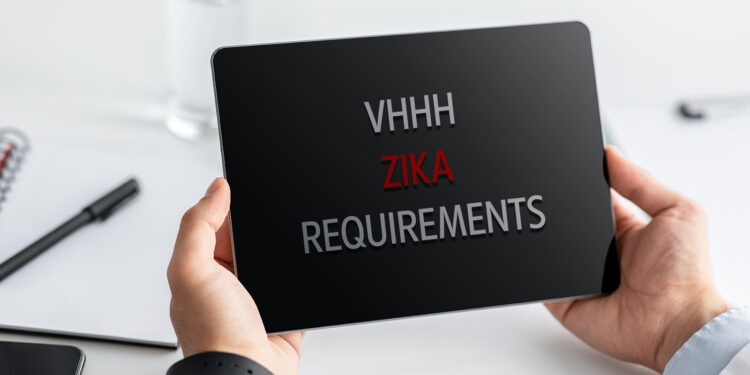VHHH Zika Virus Requirements – Part 2: Disinsection Options/Considerations

This business aviation blog post continues from our article last week, entitled “VHHH Zika Virus Requirements – Part 1: Applicable Flights & Available Options.”
It’s recommended that operators consider residual disinsection, if Hong Kong (VHHH) will be a regular destination, as it will simplify the process and eliminate the need to keep stock of the onboard sprays. For less frequent operations, it is recommended to use the non-residual disinsection one-time options (pre-flight and top of descent OR blocks away) as a residual disinsection program can be costly. Disinsection of the cabin after landing offers the advantage that passengers may exit the cabin prior to the procedure. However, potential arrival delay and the fact that an aircraft will be at a remote parking spot must also be considered.
The following is an overview of what you need to know:
1. Non-residual disinsection (pre-flight and top of descent OR blocks away)
For aerosol spraying pre-flight and top of descent, crew must spray the cabin two times (total) utilizing appropriate sprays.
Blocks away is another easy option utilizing aerosol spray, which is slightly easier as you only need to utilize one can (as opposed to pre-flight and top of descent which requires two).
In all of these options, if you have a cargo hold, it must also be treated with the appropriate spray. Upon completion of any of these procedures, a photo of the used can(s) and a picture of the signed gen dec must be emailed to the port health authority. Your ground handler can assist in submitting this on behalf of the crew. Once this step is complete, no further follow up is needed. If there are any questions from local authorities, the port health office will contact the FBO or the trip support provider.
2. Disinsection on arrival
This option is available to operators, but arrangements must be made in advance. Additionally, there may be arrival delays to consider as the aircraft will be parked further away from the fixed-base operator (FBO). Under this option, disinsection will be carried out by the crew upon arrival, under the supervision of the FBO staff and the Hong Kong Port Health Office authorities.
3. Quantity of spray
While there is no set quantity of aerosol spray that must be used with the pre-flight and top of descent or blocks away options, operators are responsible to use an appropriate volume of disinfectant considering cabin size. The technical guidelines stipulate the number of seconds and specific procedures on how the spray is to be used. While it is a requirement to email the port authority a photo of the can(s) used, authorities understand that business jets are generally smaller than airline equipment and may use one can two or three times, which is why submission of the empty cans is not required at this time.
4. Additional considerations
If an operator lands at VHHH without being enrolled in a residual disinsection program or without having performed non-residual disinsection procedures as outlined, then on arrival disinsection can be requested via the ground handler. In most cases the FBO will have stock of the appropriate spray, but there may be limited availability in the next few weeks until the FBO is able to maintain stock levels. After completing on arrival disinsection, you can make a request for residual disinsection to be accomplished. This will be valid for two months from the time it’s completed and needs to be completed at regular eight week intervals.
5. Penalties for non-compliance
If you don’t comply with required VHHH procedures as outlined by authorities, you may be subject to penalties. Below is the penalty verbiage as stipulated by the VHHH Port Health Authority:
Failure to submit the Declaration of Aircraft Disinfection may contravene section 49(1) of the Prevention and Control of Disease Regulation (Cap 599A), liable on conviction to a fine of $10,000 and imprisonment of up to six months. Pursuant to section 49(2), the person who signs or counter signs the declaration shall also ensure that the information is not false. A person who knowingly contravenes this is liable on conviction to a fine of $10,000 and imprisonment for six months. For more on this see the official announcement.
Conclusion
It’s recommended that operators stock up on cans of approved spray disinfectant. While you may be able to obtain disinfectant supplies at VHHH there may only be limited stock available. There are also penalty considerations to keep in mind for operators that don’t comply with this requirement.
Questions?
If you have any questions about this article or would like assistance operating to VHHH, contact me at sarahkalmeta@univ-wea.com.




